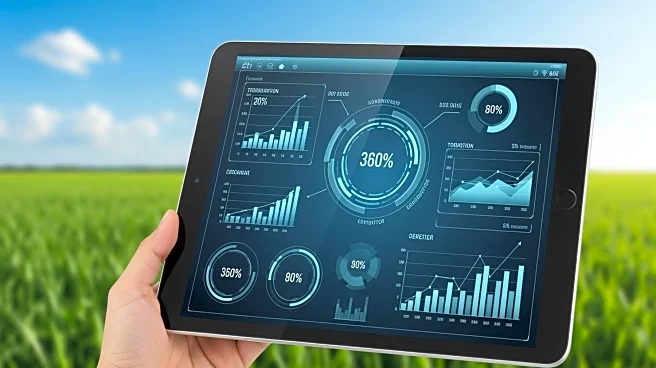What's Happening?
Mohammed Ibrahim, Executive Secretary of the National Agricultural Development Fund (NADF), has advocated for a data-driven approach to transform Nigeria's agricultural sector. Speaking at the 25th Annual
Conference of the Nigerian Association of Agricultural Economists, Ibrahim emphasized the importance of innovation, technology, and evidence-based policymaking in achieving food security. He highlighted the lack of reliable data as a major obstacle to agricultural progress, affecting planning, resource allocation, and impact measurement. Ibrahim pointed to successful digital agriculture strategies in Kenya, Ghana, and Rwanda as models for Nigeria to adopt.
Why It's Important?
The push for a data-driven agricultural sector is crucial for Nigeria's economic development and food security. Reliable data can enhance transparency, accountability, and efficiency, leading to better resource management and increased productivity. By adopting digital agriculture strategies, Nigeria can improve its competitiveness in the global market and ensure sustainable agricultural practices. This transformation can benefit farmers, agribusinesses, and consumers by providing better access to markets, finance, and information.
What's Next?
The NADF plans to implement an integrated digital platform to enhance agricultural financing and program delivery. This system will track beneficiaries, monitor performance, and align interventions with national data systems. The Fund is also designing funding models to support agritech ventures that connect farmers to markets and information. Stakeholders, including startups and small enterprises, will play a vital role in driving this transformation. Collaboration between the government, private sector, and agricultural economists will be essential to translate data into actionable insights.
Beyond the Headlines
The emphasis on data-driven agriculture highlights the intersection of technology and policy in addressing food security challenges. It underscores the need for strong intellectual input from agricultural economists and researchers to ensure that data informs sound policies and investment decisions. This approach aligns with global efforts to integrate innovation and digital technology into food systems for enhanced productivity and sustainability.









